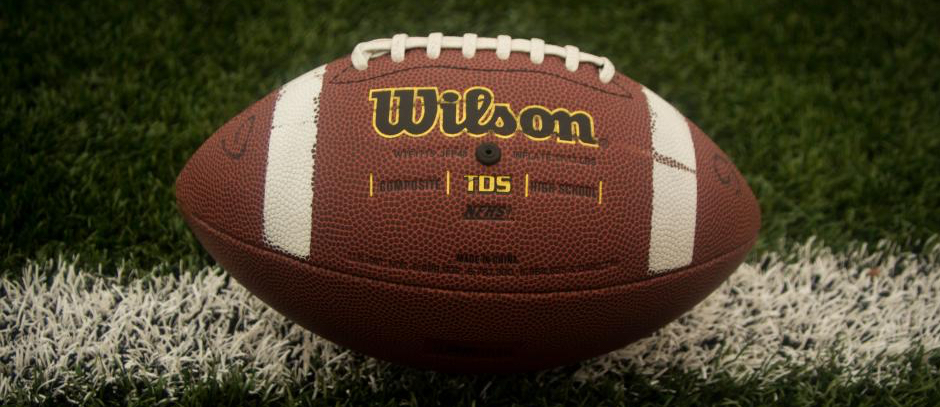Part One: Self-Control
People who don’t consider themselves very spiritual may be surprised to know that the Bible talks about athletics. It doesn’t tell us which team God cheers for. It doesn’t tell us strategies to win a game. It doesn’t tell us which team will win the World Series, World Cup, or Super Bowl. However, it does tell us what athletic effort teaches us about faith.
For those familiar with the Bible, they may remember three passages in the New Testament that use sports as a metaphor to teach us something about faith. This article is part one of three as we seek to learn how sports can teach us about faith.
Writers of the New Testament lived in the 1st century Greco-Roman world in which sports was an active part of life. New Testament letters were written to Christians in cities like Corinth and Rome, where athletes were just as much a part of culture as art, music, and food. It makes sense then to read these writers include illustrations about faith that come from the world of sport.
The ancient Olympic games began about 776 BC and latest for 12 centuries until the Roman Emperor Theodosius banned them in the 4th century. They took place in the city of Olympia. About a decade before the New Testament letter, 1 Corinthians, was written, a boxer named Melankomas became athletic legend. According to Olympic.org, “Melankomas of Caria was crowned Olympic boxing champion in 49 B.C., and was a winner in many other events. He went down in history for the way in which he fought. His movements were light, simple and fascinating. He would defeat his opponents without ever being hit himself, nor ever dealing a blow. He was reputed to fight for two days holding his arms out without ever lowering them. He attained his excellent competitive form through continuous and strenuous exercise.” We will never know for sure, but maybe the apostle Paul, the writer of 1 Corinthians, had Melankomas in mind when he wrote:
“Do you not know that those who run in a race all run, but only one receives the prize? Run in such a way that you may win. Everyone who competes in the games exercises self-control in all things. They then do it to receive a perishable wreath, but we an imperishable. Therefore, I run in such a way, as not without aim; I box in such a way, as not beating the air; but I discipline my body and make it my slave.” 1 Corinthians 9:24-27.
The athletic virtue which Paul highlights is self-control. He observes that without the ability to deny oneself the pleasures that other might afford, athletes will not win. This idea of self control means “to keep one’s emotions, impulses, or desires under control, control oneself, abstain.”* This is a reason modern sports team have nutritionists, trainers, and mental coaches on their staff. Even my own 11-year old son who plays competitive soccer gets this. Often he forgoes the offer of a soda because soda isn’t healthy and he wants to be in shape for soccer.
And what about bedtime for athletes? Set bedtimes aren’t just beneficial for young kids. Study after study has shown that it is crucial for an athlete to get enough sleep so that their body can perform at its peak. According to the National Sleep Foundation, “REM sleep in particular provides energy to both the brain and body. If sleep is cut short, the body doesn’t have time to repair memory, consolidate memory, and release hormones.” In other words, athletes have to guard themselves against binge watching their favorite TV show late into the night. What then, can the person of faith learn from this?
Self-control is virtue for the athlete and for the Christian.
There are many things in this life that are good and fine, but sometimes must be eliminated in our lives if we want to grow in our faith. Paul the apostle said that all things are permissible for him, but not all things are beneficial. The key question for anyone of faith is: “how do I need to control myself so that I can stay focused on my relationship with God?” I have emotions, desires and impulses that I must be aware of so that I can make decisions that are beneficial for my life with God. As a Christian, my future vision is on what rewards I will receive from Jesus on the day when my human race is over. If I keep my mind there, I will have an ability to say no to certain things in life because those aren’t beneficial for my current and future life.
One of the greatest things our culture can learn from elite athletes is their ability to control themselves and say no the the impulses of their own lives. Too many in our world give in to the whims and fleeting desires all around us. Yet, for people of faith, one of the qualities that can mark them is self-control. Let’s learn from the athletes around us and let us allow them to motivate us to demonstrate self-control in all areas of life.
For person reflection:
What emotion, impulse, or desire do you need to control so that you can win your race?
For fun:
watch how these kids demonstrated self-control…
*Arndt, W., Danker, F. W., & Bauer, W. (2000). A Greek-English lexicon of the New Testament and other early Christian literature (3rd ed., p. 274). Chicago: University of Chicago Press.





Leave a comment